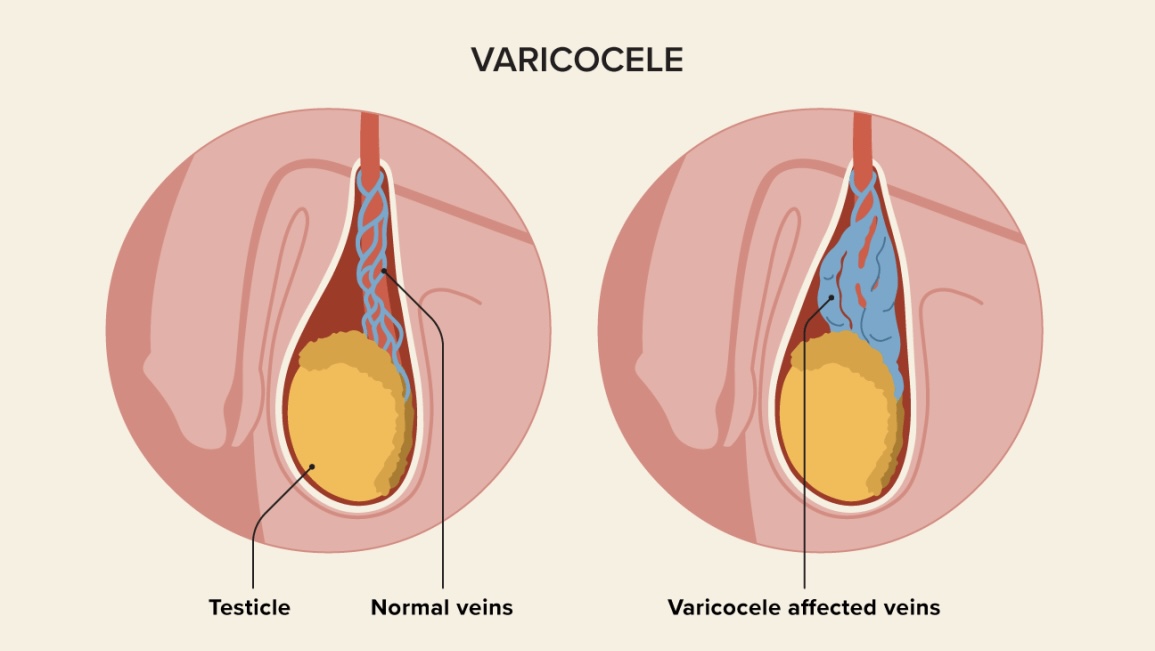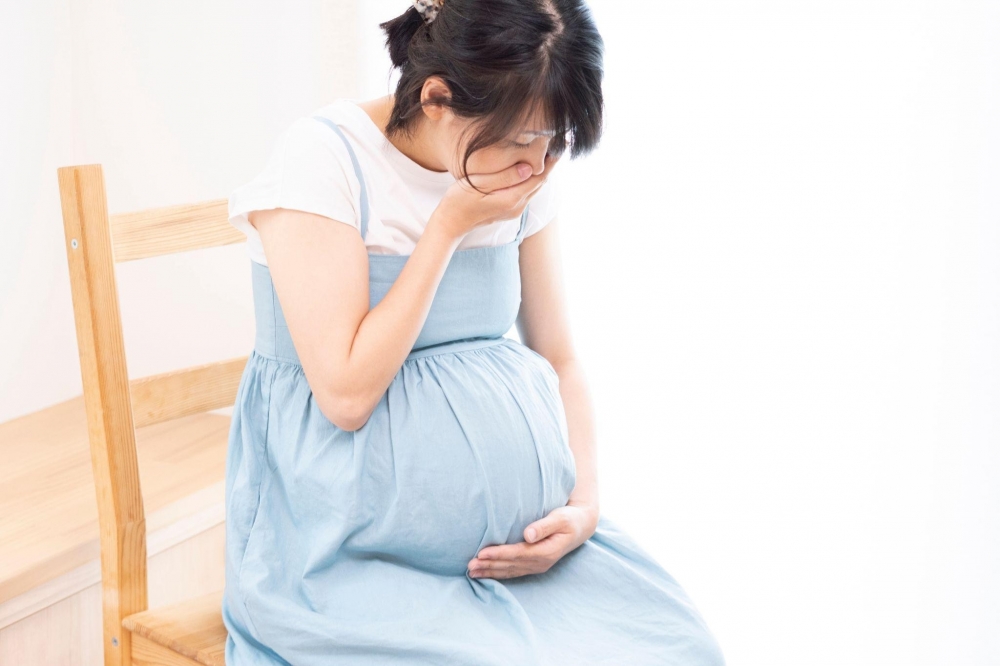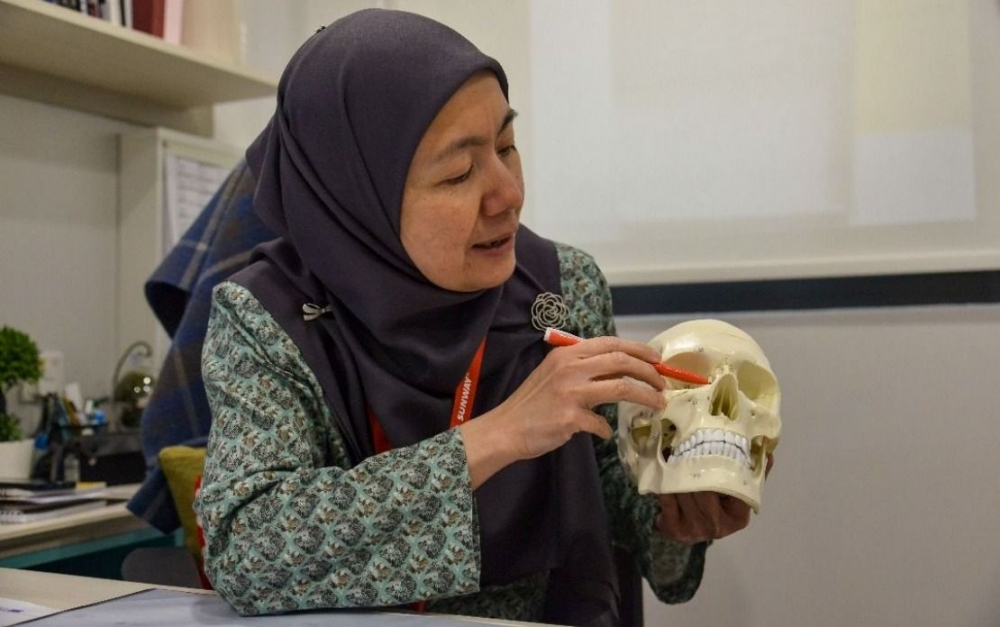Male Sperm Health? Here’s What Your Urologist Wants You To Know

When we talk about fertility challenges, the conversation often focuses on women, but male infertility is just as important to understand. One of the most common and correctable causes of male fertility issues is a condition called varicocele. If you’ve never heard of it, you’re not alone. It often goes unnoticed, until you start trying to have a child.
This November, as we focus on Men’s Health, let’s understand this issue more with Dr Goh Cheng Hood, Consultant Urologist at Sunway Medical Centre Velocity, as he explains how varicoceles can affect male fertility, the symptoms to look out for, and the treatment options available.

What Is a Varicocele?
A varicocele is an enlargement of the veins within the scrotum, the sac of skin that holds the testicles. These veins, known as the pampiniform plexus, are responsible for draining blood from the testicles. When they become swollen and dilated, they disrupt the normal cooling mechanism that keeps the testicles at the optimal temperature for sperm production.
You can think of a varicocele like a varicose vein in your leg, except it’s in a far more delicate location. It’s most commonly found on the left side of the scrotum due to anatomical differences in how blood drains from the testicles.

Why It Matters
While varicoceles don’t always cause obvious symptoms, they can interfere with sperm production, hormone levels, and even testicular growth. This makes them a leading cause of male infertility, accounting for up to 40% of fertility issues in men with abnormal semen analysis.
How Do Varicoceles Affect Fertility?
Fertility is a delicate balance. When veins in the scrotum become enlarged, blood tends to pool and create excess heat in the testicles. This subtle rise in temperature may disrupt:
- Sperm count (the number of sperm in ejaculate)
- Sperm motility (how well sperm move)
- Sperm morphology (shape and structure)
- Testosterone production
Even when symptoms are not noticeable, this internal disruption can reduce the likelihood of conception. For couples who have been trying to conceive for over a year without success, checking for varicocele is often a crucial step in the fertility work-up.
Common Symptoms (And What It Feels Like)
Many men with varicocele have no symptoms at all. However, in some cases, it may cause:
- A dull ache or heaviness in the scrotum, especially after standing or exercising
- A visible or palpable “bag of worms” texture above the testicle
- One testicle appearing smaller than the other
- Fertility struggles or an abnormal semen analysis
If you’re experiencing any of the above or have concerns about fertility, it’s worth speaking to a urologist, the specialist trained in male reproductive health.
Other Fixable Causes of Male Infertility
While varicocele is a key concern, it’s not the only culprit. There are few common and treatable causes that urologists often screen for:
Lifestyle Factors
Sperm health is highly sensitive to daily habits. These modifiable factors are often overlooked:
- Smoking and recreational drug use
- Heavy alcohol consumption
- Obesity and poor diet
- Chronic stress or inadequate sleep
- Heat exposure (frequent sauna use, hot baths, tight clothing)
- Nutrient deficiencies, particularly zinc, selenium, and vitamin D
These lifestyle-related issues are reversible meaning that even small changes can lead to significant improvements in sperm quality over time.
Diagnosis: What to Expect During a Consultation
A urologist will begin with a detailed medical history and physical examination. If a varicocele is suspected, the doctor may perform a Valsalva manoeuvre, asking you to bear down while standing, to feel for abnormal veins.
If further confirmation is needed, additional tests may include:
- Scrotal ultrasound – to visualise the veins and assess the severity
- Semen analysis – to check sperm count, motility, and morphology
- Blood tests – to evaluate hormone levels such as testosterone, FSH, and LH
Treatment Options: Do You Always Need Surgery?
Not necessarily. Treatment depends on your symptoms, fertility goals, and test results. If you’re not in pain and not trying to conceive, monitoring may be enough. Tight-fitting underwear can help relieve discomfort during exercise or prolonged standing. Pain relievers may also be helpful.
Surgical Option: Varicocelectomy
For those with fertility issues or persistent discomfort, a varicocelectomy is often recommended. This minor outpatient surgery involves tying off or sealing the affected veins so blood can reroute through healthy pathways.
Most men return to normal activities within 1–2 weeks, and sperm improvements may be seen within 3–6 months.
Long-Term Outlook: What Happens If Left Untreated?
A small varicocele that doesn’t cause symptoms may not need treatment at all. But in more severe cases, untreated varicocele may lead to:
- Permanent testicular damage or shrinkage
- Progressive decline in sperm quality
- Ongoing discomfort or scrotal heaviness
- Difficulty conceiving
Early diagnosis offers the best chance of preserving fertility and testicular function, especially for men considering fatherhood in the future.
When Should You See a Urologist?
Make an appointment if you notice:
- A lump, swelling, or discomfort in your scrotum
- Changes in testicle size
- Difficulty getting your partner pregnant after a year of trying
- Concerns about hormone levels or low libido
A simple evaluation may provide clarity, and relief.
Key Takeaway: Don’t Ignore the Signs
Male infertility is far more common than most people realise, and the causes are often treatable. Whether it’s a silent varicocele, an undiagnosed hormone issue, or a lifestyle factor, a urologist can help you identify the root of the problem.
Taking that first step may feel daunting, but it’s the best way to take charge of your reproductive health and move closer to the future you envision, one that may include starting or growing a family.
Was this article helpful?
2 out of 2 found this helpful
Suggest to Read









